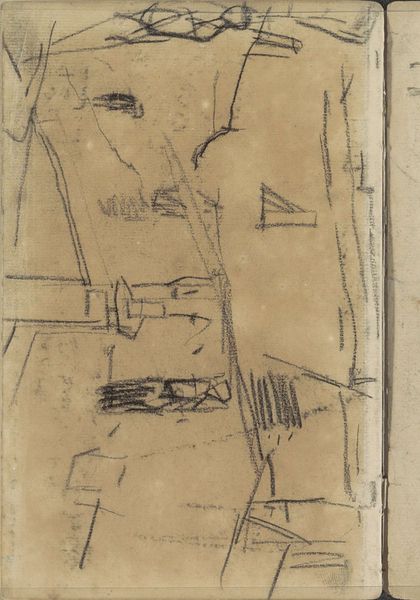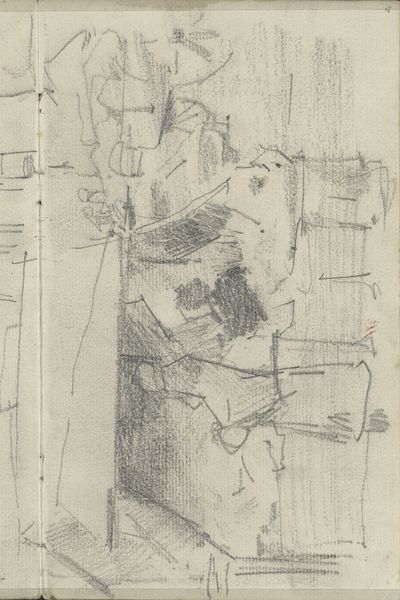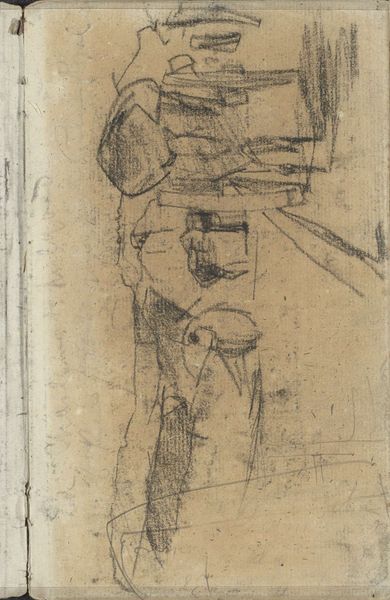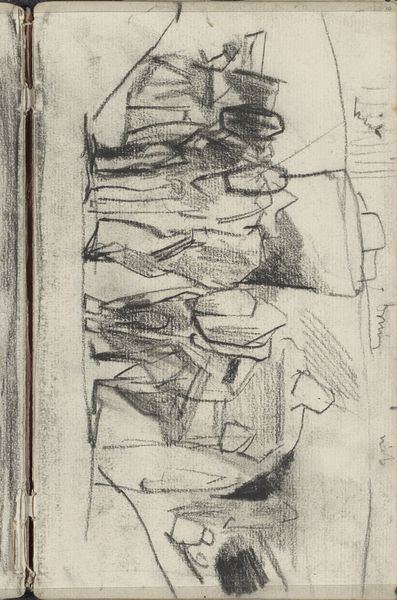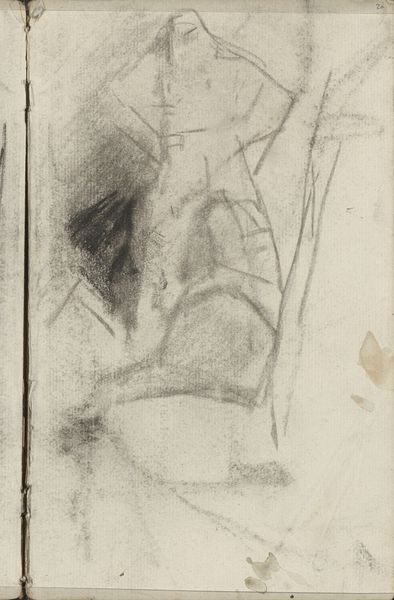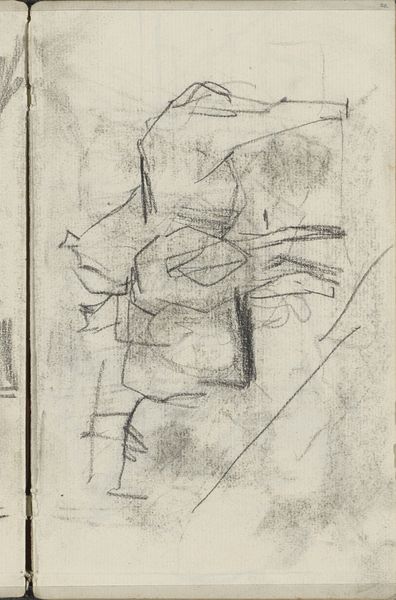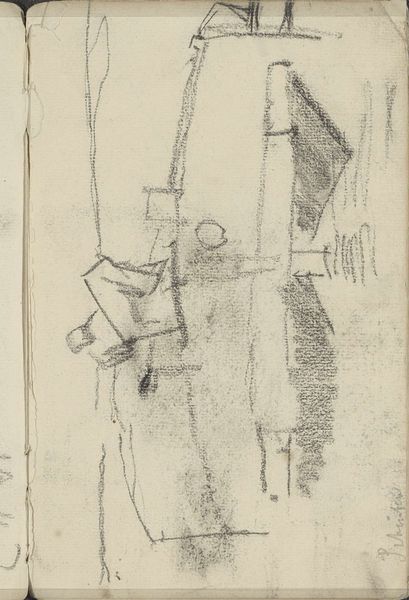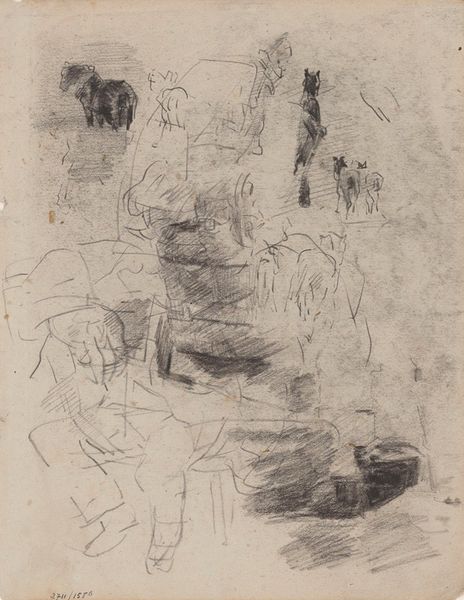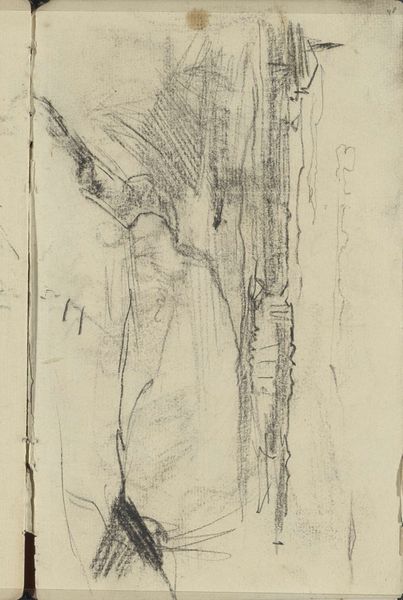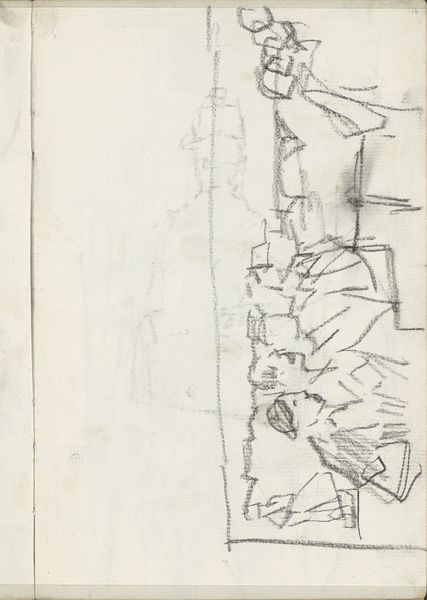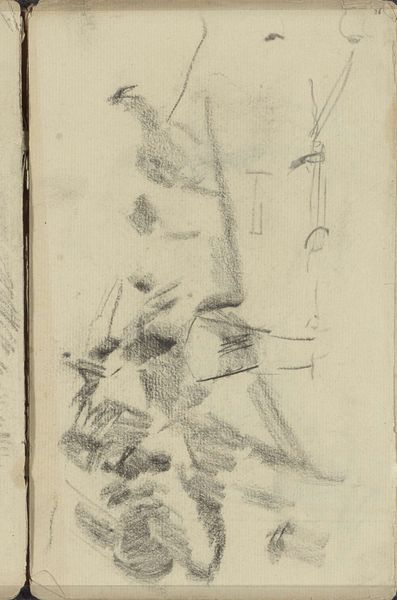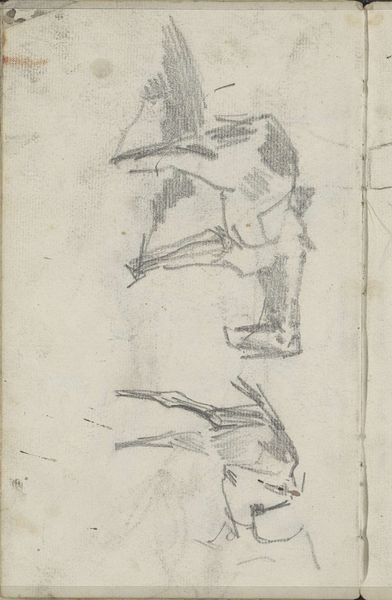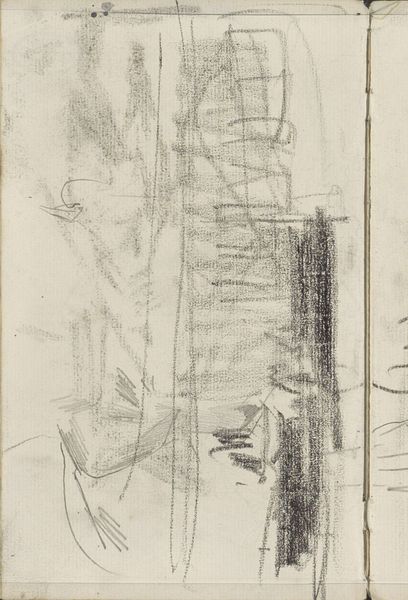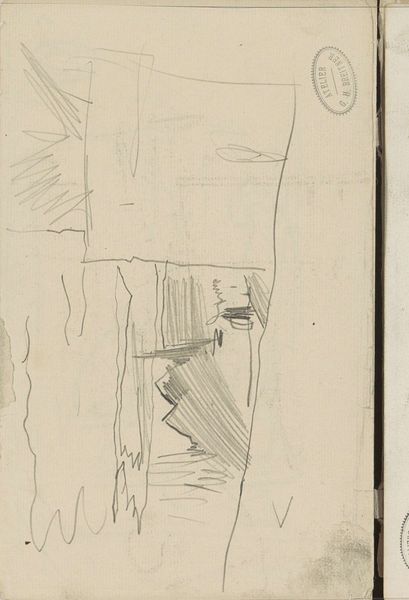
drawing, paper, pencil
#
portrait
#
drawing
#
amateur sketch
#
toned paper
#
light pencil work
#
impressionism
#
pencil sketch
#
incomplete sketchy
#
paper
#
personal sketchbook
#
underpainting
#
detailed observational sketch
#
pencil
#
horse
#
sketchbook drawing
#
sketchbook art
Copyright: Rijks Museum: Open Domain
Editor: This is "Studies van paarden," or "Studies of Horses," by George Hendrik Breitner, likely from the 1880s. It's a pencil drawing on paper and has a very loose, unfinished quality, almost like a glimpse into the artist’s process. What do you see in this piece beyond the obvious subject matter? Curator: I see Breitner engaging with the social realities of his time. Remember, he was known as the 'painter of the people.’ The rapid sketches, the unfinished quality – they speak to the urgency of documenting a changing world. This isn't just about horses; it’s about capturing a fleeting moment in the urban landscape, and about the labor involved in animal power within that context. Consider the role of horses in 19th-century society – what does their depiction here suggest about the intersection of animal labor, class, and industrialization? Editor: So you're saying the sketchiness is deliberate, a commentary rather than a lack of skill? I had interpreted it as just practice work. Curator: Exactly! Breitner was influenced by Impressionism but grounded in social observation. He wasn't just interested in the aesthetic quality of light and shadow; he was interested in documenting the social conditions around him. This seemingly simple study of horses, therefore, carries the weight of a society in transition. Think about how access to representing and even *seeing* certain subjects and themes would be dependent on one’s class, gender, or social standing. How does Breitner’s background allow him access to these scenes? Editor: That makes me look at it completely differently. I was focused on the horses themselves, not what they represented. I suppose art doesn’t exist in a vacuum, then? Curator: Precisely. Understanding the historical context and the artist’s socio-political awareness enriches our interpretation immeasurably. It challenges us to move beyond mere observation and engage in critical dialogue with the artwork. Editor: I will definitely keep in mind the power of context, especially historical context. Thank you.
Comments
No comments
Be the first to comment and join the conversation on the ultimate creative platform.
